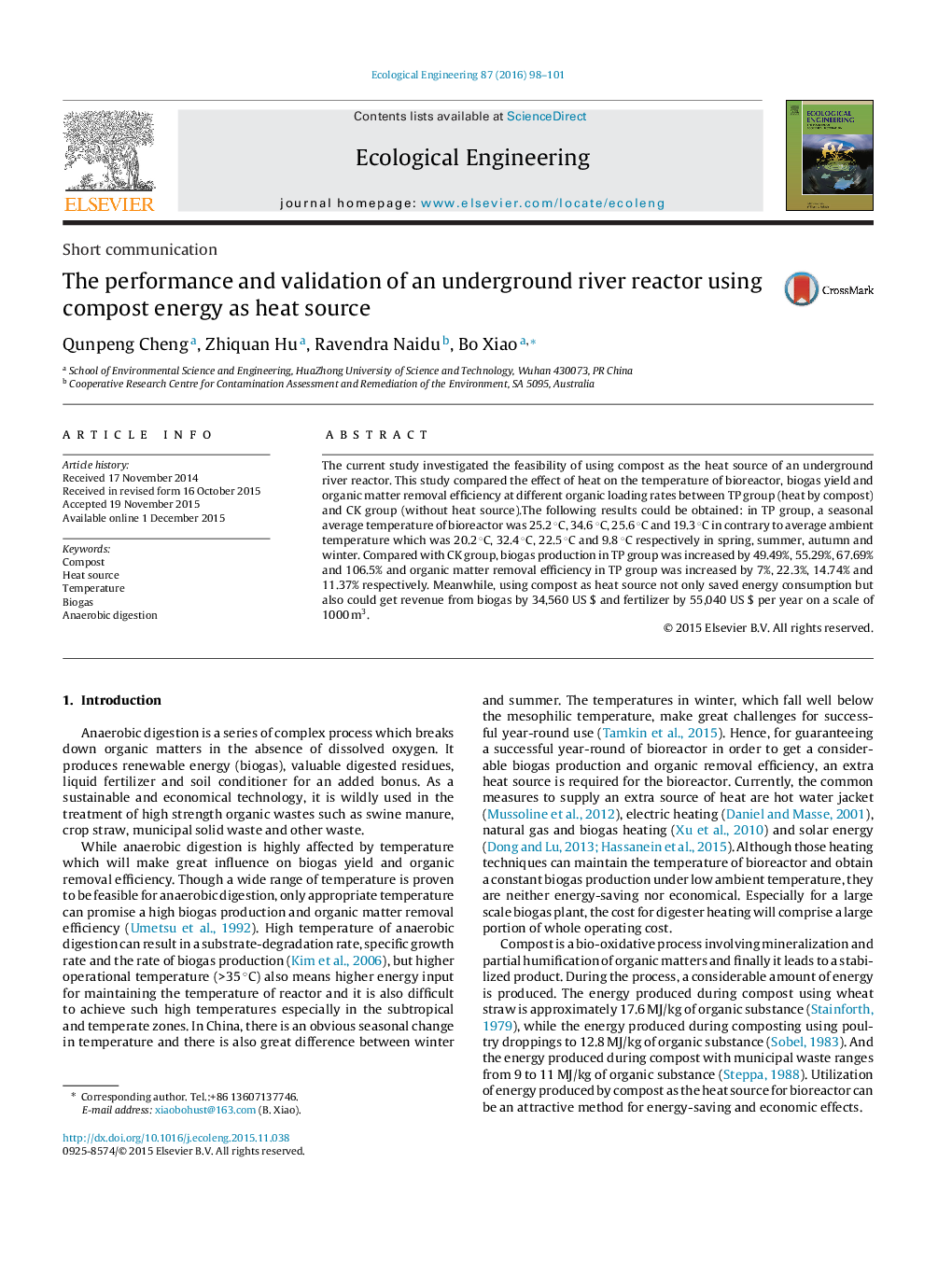| Article ID | Journal | Published Year | Pages | File Type |
|---|---|---|---|---|
| 6301451 | Ecological Engineering | 2016 | 4 Pages |
Abstract
The current study investigated the feasibility of using compost as the heat source of an underground river reactor. This study compared the effect of heat on the temperature of bioreactor, biogas yield and organic matter removal efficiency at different organic loading rates between TP group (heat by compost) and CK group (without heat source).The following results could be obtained: in TP group, a seasonal average temperature of bioreactor was 25.2 °C, 34.6 °C, 25.6 °C and 19.3 °C in contrary to average ambient temperature which was 20.2 °C, 32.4 °C, 22.5 °C and 9.8 °C respectively in spring, summer, autumn and winter. Compared with CK group, biogas production in TP group was increased by 49.49%, 55.29%, 67.69% and 106.5% and organic matter removal efficiency in TP group was increased by 7%, 22.3%, 14.74% and 11.37% respectively. Meanwhile, using compost as heat source not only saved energy consumption but also could get revenue from biogas by 34,560 US $ and fertilizer by 55,040 US $ per year on a scale of 1000 m3.
Related Topics
Life Sciences
Agricultural and Biological Sciences
Ecology, Evolution, Behavior and Systematics
Authors
Qunpeng Cheng, Zhiquan Hu, Ravendra Naidu, Bo Xiao,
